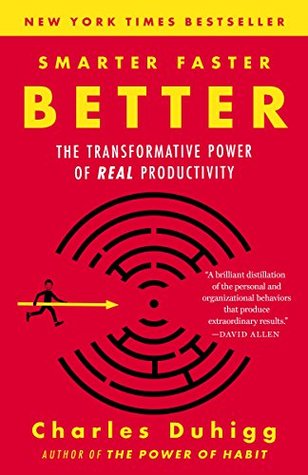More on this book
Community
Kindle Notes & Highlights
In 1980, more than 90 percent of the American workforce reported to a boss. Today more than a third of working Americans are freelancers, contractors, or in otherwise transitory positions.
a prerequisite to motivation is believing we have authority over our actions and surroundings. To motivate ourselves, we must feel like we are in control.
On the best teams, for instance, leaders encouraged people to speak up; teammates felt like they could expose their vulnerabilities to one another; people said they could suggest ideas without fear of retribution; the culture discouraged people from making harsh judgments.
They were all behaviors that created a sense of togetherness while also encouraging people to take a chance.
Psychological safety is a “shared belief, held by members of a team, that the group is a safe place for taking risks.”
Teams need to believe that their work is important. Teams need to feel their work is personally meaningful. Teams need clear goals and defined roles. Team members need to know they can depend on one another. But, most important, teams need psychological safety.
Teams succeed when everyone feels like they can speak up and when members show they are sensitive to how one another feels.
There is a fine line between an ambition that helps people achieve something amazing and one that crushes morale.
What is the point of hiring smart people, we asked, if you don’t empower them to fix what’s broken?”
Employees work smarter and better when they believe they have more decisionmaking authority and when they believe their colleagues are committed to their success.
Making good decisions relies on forecasting the future, but forecasting is an imprecise, often terrifying, science because it forces us to confront how much we don’t know.
The paradox of learning how to make better decisions is that it requires developing a comfort with doubt.
Our assumptions are based on what we’ve encountered in life, but our experiences often draw on biased samples.
Accurate forecasting requires exposing ourselves to as many successes and disappointments as possible.
the mistake some people make is trying to avoid making any predictions because their thirst for certainty is so strong and their fear of doubt too overwhelming.
As the economy changes, and our capacity to achieve creative insights becomes more important than ever, the need for fast originality is even more urgent. For many people, in fact, figuring out how to accelerate innovation is among their most important jobs.
“The highest-impact science is primarily grounded in exceptionally conventional combinations of prior work yet simultaneously features an intrusion of unusual combinations.”
This method is worth studying because it suggests a way that anyone can become an idea broker: by drawing on their own lives as creative fodder.
“Creativity is just connecting things,”
People become creative brokers, in other words, when they learn to pay attention to how things make them react and feel.
“local species diversity is maximized when ecological disturbance is neither too rare nor too frequent.”


